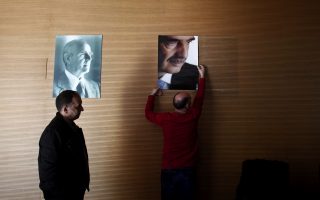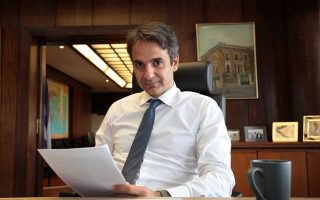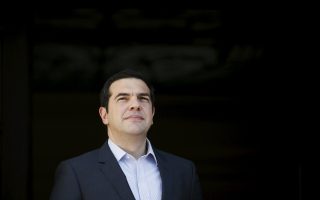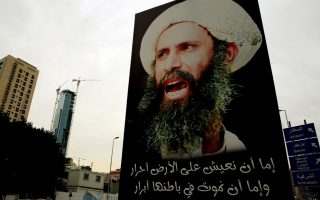A paradigm shift

In line with a pattern that started to develop at the onset of the Greek economic and social crisis in 2009, Greece continued to dominate the headlines for most of 2015 as well. Whether it was the negotiations with the troika, the referendum, capital controls, the need for debt relief, national elections, worsening social and economic conditions, or the refugee crisis, the conversation both internally and externally continued to revolve unabated around these and other related matters.
For someone observing these developments somewhat from a distance, it sooner or later becomes evident that when it comes to Greece today the narrative remains the same, both inside and outside the country. It may assume different tones and hues, but its essence is fundamentally the same. Corruption, political ineptitude, the bloated public sector, lack of reforms, tax evasion, a state-dependent private sector, austerity, poverty, economic stagnation, unemployment, brain drain: These are some of the issues that are part of the narrative about Greece today. They should be. However, this very narrative, this discourse, has assumed a life of its own and has started to control everything. It stands above and outside everything else and has become omnipotent. It is a narrative, a discussion, and a speech for the sake of speech that continues to grow and dominate. It effectively carries no possibility of action and consequently no possibility of meaningful change. It is noise that is itself beginning to swallow and obliterate everything.
At the beginning 2016, as we should be thinking of what needs to start happening in order for things to change this year, I believe we need a new beginning, a new speech, a new narrative, a new reality. Any hope for meaningful change starts with the need to establish a new public discourse. If we accept this fundamental premise, then we can start paying attention and openly debate the focus of this new narrative.
Institutions: Historically, the establishment of proper, well-performing, accountable and effective public and private institutions, whether we are talking about education, culture, health or governance itself, is a critical component and prerequisite for a well-functioning society. Since institutions enter and define public consciousness, they become a critical component of civic life. Any attempt to create a different narrative about Greece today has to start with the rebuilding of public and private institutions under fundamentally different premises from the ones under which they operate today, institutions that are based on accountability, responsibility and respect.
Public domain: The emergence of an appropriate and redefined public domain is essential for the creation of a truly effective social welfare society. What is the definition of public domain? It is a space dominated by an emphasis on common interests and open processes, a space characterized by the three crucial values of accountability, responsibility and respect. Public domain as such is absent from today’s Greece. What passes as public domain today is defined, in its entirety, by private interests and concerns, as well as secret processes. These are the defining characteristics of a private rather than a public domain. The reassertion of a truly public domain in the midst of civic life constitutes a key step in the creation of a new narrative. In order to be truly effective, such a narrative has to be built on the proper collaboration of such institutions, whether they come from the public, private, or not-for-profit domain.
Back to the basics – room to breathe and room to hope: The story about Greece today is a story clad in superlatives and excesses. At a time when the discussion needs to be framed by simple, practical steps, it is rather framed by rhetoric and straightforward sophistry. At a moment when simple practical steps and a language of clarity are required, we seem to be guided by the fundamental tenet of the Second Sophistic: obscurity is wisdom. As a co-president of a global not-for-profit philanthropic organization – the Stavros Niarchos Foundation – that over a period of two decades, and especially the last six years, has provided significant support toward helping to alleviate the severe consequences of the Greek crisis, we have experienced firsthand, through our philanthropic efforts, how crucial it is to provide room to breathe and room to hope during Greece’s current dire predicament.
The Stavros Niarchos Foundation’s three major initiatives, totaling 300 million euros (100 million each), are intended to give people under enormous pressure from the continuing crisis room and time to do something very simple but also very crucial: to have time and room to breathe, a respite from the suffering. Two of the initiatives, the Initiative Against the Greek Crisis I (completed) and II (ongoing), aimed at providing relief support, while the third, the Recharging the Youth initiative (ongoing), aims to help battle youth unemployment.
The Stavros Niarchos Foundation Cultural Center will be completed in 2016 and epitomizes the need to provide the country with room to hope. It bears witness to the importance of assuming a much larger responsibility right now, that of imagining a different vision for Greece’s future, one defined by visible hope.
As children, all of us are defined by the ways others see us, by the stories that those around us tell us about ourselves, or by the ways we dream and imagine ourselves. These are just myths about who we are. The road to adulthood and to maturity requires that we smash the myths and figure out our true selves. For a long time now, and certainly during the last few years, Greece has appeared to be in a prolonged state of arrested development. Who we are as people and as a country is shaped by what others tell us about ourselves, and by the myths we keep nurturing about ourselves (exceptionalism etc). The current crisis has highlighted this grave predicament. The way forward and the way out of it requires the painful realization that the time has come for us to grow up, to shed the myths that have defined us for such a long time, and to create a new narrative, a new reality about ourselves that is based on a true understanding of who we really are. ABTTY (Always Be True To Yourself) is an essential prerequisite if we are to succeed. We cannot be true to anyone else if we are not true to ourselves first, and as a Greek nation we simply have to do it.
2016 can hopefully be the year of the beginning of the writing of a new story, the year of the emergence of a radically different speech, the creation of a new beginning, a new reality.
* Andreas Dracopoulos is President of the Stavros Niarchos Foundation.





